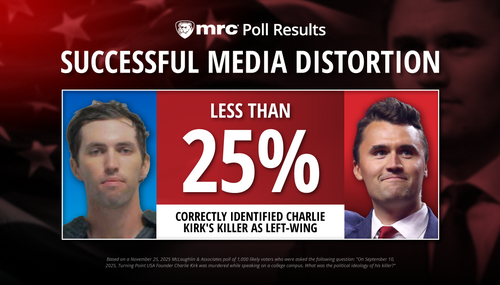One of the odder pieces appearing during the past week in connection with the Hillary Clinton email and private server scandal was David Ignatius's attempt to deny that it's a scandal at all in Thursday's Washington Post.
Ignatius devoted four of his first five paragraphs to relaying the allegedly expert assessments of Jeffrey Smith, who Ignatius described as "a former CIA general counsel who’s now a partner at Arnold & Porter, where he often represents defendants suspected of misusing classified information." Sounds like an arms-length guy, doesn't he? He's not. He has been a security adviser to Hillary Clinton's previous presidential campaign, defended John Kerry against criticism of the Massachusetts senator's national security negligence in 2004, and served on Bill Clinton's presidential transition team in late 1992 and early 1993.
Here are the first five paragraphs of Ignatius's ignominious column (HT to Kristinn Taylor at the Gateway Pundit via "maggief" at FreeRepublic; bolds are mine throughout this post):
The Hillary Clinton e-mail ‘scandal’ that isn’t
Does Hillary Clinton have a serious legal problem because she may have transmitted classified information on her private e-mail server? After talking with a half-dozen knowledgeable lawyers, I think this “scandal” is overstated. Using the server was a self-inflicted wound by Clinton, but it’s not something a prosecutor would take to court.
“It’s common” that people end up using unclassified systems to transmit classified information, said Jeffrey Smith, a former CIA general counsel who’s now a partner at Arnold & Porter, where he often represents defendants suspected of misusing classified information.
“There are always these back channels,” Smith explained. “It’s inevitable, because the classified systems are often cumbersome and lots of people have access to the classified e-mails or cables.” People who need quick guidance about a sensitive matter often pick up the phone or send a message on an open system. They shouldn’t, but they do.
“It’s common knowledge that the classified communications system is impossible and isn’t used,” said one former high-level Justice Department official. Several former prosecutors said flatly that such sloppy, unauthorized practices, although technically violations of law, wouldn’t normally lead to criminal cases.
Clinton’s use of a private e-mail server while she was secretary of state has been a nagging campaign issue for months. Critics have argued that the most serious problem is possible transmission of classified information through that server. Many of her former top aides have sought legal counsel. But experts in national-security law say there may be less here than it might appear.
Oddly enough, despite his reference to "a half-dozen knowledgeable lawyers," Ignatius did not quote anyone else by name in his "analysis." Instead, he went back to Smith for more in Paragraphs 9 and 10:
What happens in the real world of the State Department? Smith takes the hypothetical example of an assistant secretary who receives a classified cable from, say, Paris, about a meeting with the French foreign minister and wants quick guidance from the secretary. So he dashes off an e-mail — rather than sending a classified cable that would be seen by perhaps a dozen people.“Technically, he has taken classified information and put it onto an unclassified system,” Smith said. “It’s the same as picking up a telephone and talking about it. It’s not right. But the challenge of getting the secretary’s attention — getting guidance when you need it — is an inevitable human, bureaucratic imperative. Is it a crime? Technically, perhaps yes. But it would never be prosecuted.”
In Paragrah 11, Ignatius went back to the days before computerized communications with a "former State Department official" — as if any of what occurred during that era is at all relevant:
Informal back channels existed long before e-mail. One former State Department official recalled the days when most embassies overseas had only a few phones authorized for secret communications. Rather than go to the executive office to make such a call, officers would use their regular phones, bypassing any truly sensitive details. “Did we cross red lines? No doubt. Did it put information at risk? Maybe. But, if you weren’t in Moscow or Beijing, you didn’t worry much,” this former official said.
I'll bet they would have been less nonchalant if every conversation had been recorded internally and stored in a place vulnerable to theft — which basically describes the condition of emails stored on personal private servers today.
In essence, the "defenses" enumerated in Ignatius's column amount to, "Everybody does it, so what's the big deal?" They would be funny if they weren't so fundamentally dishonest. None of the examples cited involve a State Department head consciously setting up her own rogue communiciations system for the clear purpose of ensuring that the public she supposedly serves will never get to see what she has done. There are specific laws against that — and it's inconceivable that anyone not named Hillary Clinton would be given a pass for such a four-year pattern of behavior.
The evidence of Jeffrey Smith's lack of objectivity is clearly significant enough that Ignatius should have disclosed it:
(From The New Republicin April 2007)
Hillary has also recruited a new and relatively unknown adviser: longtime defense establishment insider Jeffrey Smith. “When she went on Armed Services, she telephoned me and asked if I would come up and give her a sense of the issues she'd encounter,” says Smith, who served as general counsel to the CIA in the mid-’90s and is now a partner at the Washington law firm Arnold & Porter. Though Smith has civil libertarian views on intelligence (he strongly opposes the Guantanamo Bay detainee program), he is a West Point graduate with roots in military culture who spent several years working for (former Democratic Senator Sam) Nunn on the Senate Armed Services Committee. During the 2004 campaign, Smith said he had found John Kerry's 1971 charges of U.S. war crimes in Vietnam offensive. Smith has been a harsh critic of the Iraq war from the start, but, like Hillary, he has argued that the United States can't summarily withdraw. “[N]o one should question how difficult—or how important—it is to achieve our mission,” he wrote in a 2003 op-ed.
(At Salon.com in March 2004)
President Bush is attacking John Kerry for supposedly trying to “gut” U.S. intelligence services in the mid-90s. Here to refute him is former general counsel of both the CIA and Senate Armed Services Committee, Jeffrey Smith. (The following is a statement released by Smith.)
“I am particularly upset by the Bush Campaign efforts to paint Senator Kerry as being out of the mainstream in the mid-90s with respect to efforts to ensure responsible spending by and for the intelligence community. If he was out of the mainstream, so were most other Senators — including many Republican Senators.
(New York Daily News, in November 2007, in an item identifying various campaigns' key national security advisers)
… Asterisks * indicate close advisers for each candidate. **HILLARY CLINTON** – Madeleine Albright * – Richard Holbrooke * – Sandy Berger * – Lee Feinstein * – John Podesta * – Jeffrey Smith *
(From Smith’s bio page at Arnold & Porter)
“In 1992 and 1993, Mr. Smith served as the chief of the Clinton Transition Team at the US Department of Defense. He also chaired the Joint Security Commission established in 1993 by Secretary of Defense Les Aspin and CIA Director James Woolsey to examine the security procedures of the defense and intelligence communities and the companies that contract with them. In addition, he served on the congressionally mandated Commission on Roles and Missions of the Armed Services.”
There's every reason to believe that Jeffrey Smith was on a partisan mission to defend Hillary Clinton, not some kind of noble public education effort. Ignatius had an obligation to disclose relevant elements of Smith's background so readers could give it a fair evaluation. He didn't do that. Criticism of his lack of disclosure at the related Twitter tease and efforts by Taylor at Gateway Pundit to persuade Ignatius to do the right thing have thus far gone unheeded.
Others at the Post, up to and including publisher Fred Ryan, should insist that the column in question contains adequate disclosures, and force them into print if Ignatious won't make them himself. Don't hold your breath waiting for the paper to do what it clearly should.
Cross-posted at BizzyBlog.com.




